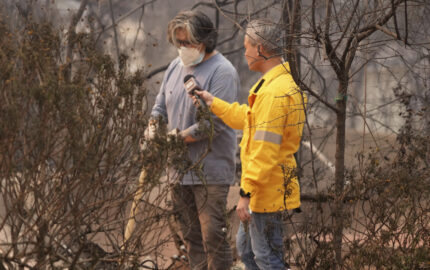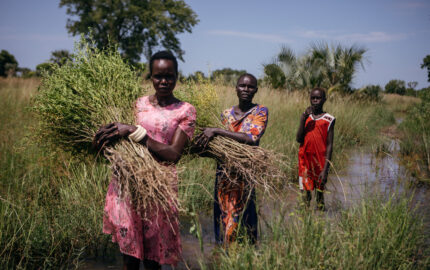Issac J. Bailey, a 2014 Nieman Fellow, is a journalist, author, and race relations seminar creator and facilitator. Here he shares an experience that forced him to take an uncomfortable look at race in the United States and — as a journalist — his own role in it.
Related Reading
Transcript
I stood in the dungeons of Elmina Castle in Ghana, a fortress nearly twice the size of the White House. The Portuguese built it in 1482 as a trading settlement where the worth of black men and black women was determined by the number of trinkets, beads and guns they could be traded for.
I heard how these black men and women had been packed like sardines for up to three months, that select women were chosen to be raped by their white captors. I had been to the “Door of No Return.”
I had been taken aback by the beauty of the beach and palm trees and an ocean that became the site of the barbaric Middle Passage.
But it was the sign above a window overlooking the Atlantic that stopped me cold. I couldn’t make out most of the words, written in a language I didn’t understand. But I could make out “Psalm 132.” Here was a Christian Bible verse in a slave castle, where white men taught stolen black souls about a supposedly all-loving God before they were shipped into permanent bondage on the other side of the ocean. That’s where my family would emerge and be punished for the sin of having been born with dark skin — even as we adopted the faith our ancestors were force-fed while being tortured.
It has me conflicted like little else. It reminded me that I have so much more to learn, even when it hurts, especially when it hurts, that as a journalist I will never be able to fully explain the complex story that is race in America without understanding this legacy – and my unwitting role in it.
Credits
Written and voiced by Issac J. Bailey
Produced and edited by Leah Becerra
Visuals: Issac J. Bailey, Nieman Foundation for Journalism at Harvard and Google
Music: “Winds of Change” performed by Four Trees



